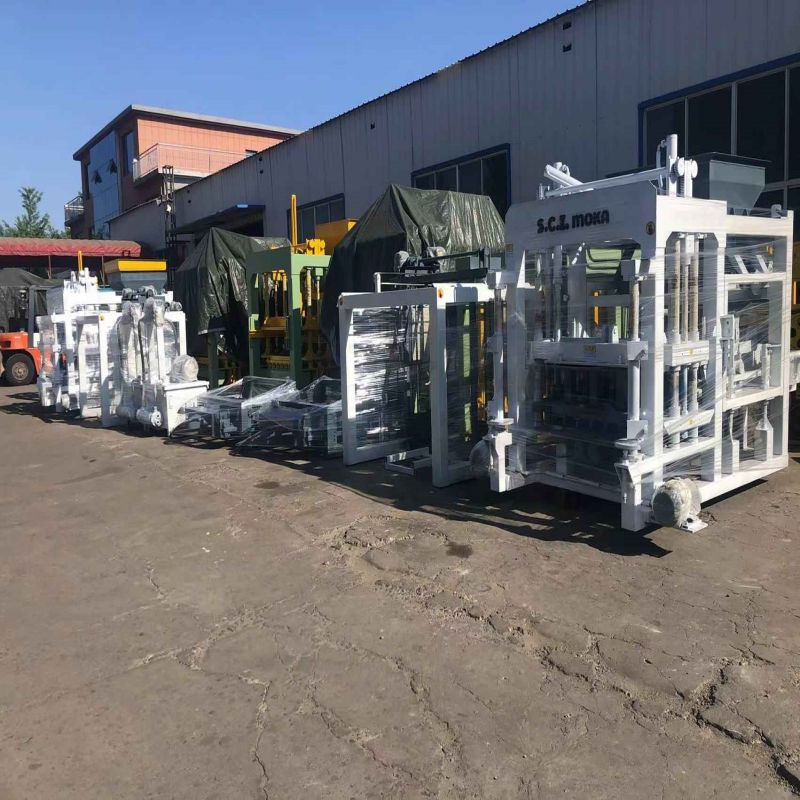
Image source:Aiwei block machine
Introduction
Artificial Intelligence (AI) has emerged as a transformative technology in various industries, and the Chinese brick making machine sector is no exception. AI-powered systems are revolutionizing traditional brick manufacturing processes by enhancing efficiency, precision, and automation. In this article, we will explore the integration of AI in Chinese brick making machines, its benefits, and the impact it has on the industry.
Automated Production Processes
One of the primary advantages of integrating AI in Chinese brick making machines is the automation of production processes. AI algorithms can analyze and optimize the various stages of brick production, from raw material preparation to molding, drying, and curing. By leveraging AI, brick making machines can perform tasks with greater precision and consistency, reducing human error and enhancing productivity.
AI-powered sensors and cameras can monitor key parameters such as temperature, moisture content, and pressure in real-time. This data is then analyzed by AI algorithms to make immediate adjustments to the production process, ensuring optimal conditions for brick formation. This level of automation minimizes the need for human intervention, speeds up production cycles, and reduces costs.
Quality Control and Defect Detection
AI technology plays a crucial role in improving the quality control of bricks produced by Chinese brick making machines. Through machine learning algorithms, AI systems can learn from vast amounts of data to identify patterns and characteristics of high-quality bricks. These algorithms can then be used to detect defects or deviations in real-time during the production process.
By integrating AI-powered vision systems, brick making machines can inspect each brick for imperfections, such as cracks, irregular shapes, or color variations. This level of automated quality control ensures that only bricks that meet strict quality standards are selected for further processing, minimizing waste and enhancing the overall product quality.
Predictive Maintenance and Fault Detection
AI-driven predictive maintenance is another significant benefit of integrating AI in Chinese brick making machines. By continuously monitoring the machines’ performance and analyzing data from sensors and historical records, AI algorithms can detect potential faults or maintenance requirements before they lead to equipment failure.
This predictive maintenance capability helps to minimize downtime, increase machine lifespan, and reduce maintenance costs. Machine learning algorithms can identify patterns and anomalies in the data to predict when specific components or systems are likely to fail. This allows operators to schedule maintenance activities proactively, preventing unexpected breakdowns and optimizing machine performance.
Energy Optimization and Efficiency
AI can also optimize energy consumption and enhance the overall efficiency of Chinese brick making machines. By analyzing data from sensors and historical energy usage, AI algorithms can identify areas where energy can be saved or optimized.
For example, AI algorithms can optimize the firing process in brick kilns by adjusting temperature profiles based on the characteristics of the raw materials and environmental conditions. This ensures optimal energy usage while maintaining the desired brick quality. Additionally, AI-powered systems can analyze energy consumption patterns and suggest energy-saving measures, such as adjusting production schedules or optimizing machine settings.
Data Analytics and Decision Support
Integrating AI in brick making machines allows for extensive data collection and analysis. AI algorithms can process large volumes of data from multiple sources, including machine sensors, production records, and environmental factors. This data can be used to gain valuable insights and support decision-making processes.
By analyzing production data, manufacturers can identify bottlenecks, optimize workflows, and improve overall operational efficiency. AI-powered analytics can provide real-time dashboards and reports, allowing operators to monitor production performance and make data-driven decisions.
Conclusion
The integration of Artificial Intelligence in Chinese brick making machines is transforming the industry, enhancing productivity, quality, and sustainability. AI-powered systems automate production processes, improve quality control, enable predictive maintenance, optimize energy usage, and provide valuable data analytics and decision support.
As AI technology continues to advance, the capabilities of Chinese brick making machines will only expand, leading to further improvements in efficiency, cost-effectiveness, and environmental impact. The integration of AI is reshaping the brick manufacturing landscape, enabling manufacturers to meet the demands of the modern construction industry and contribute to sustainable development.
